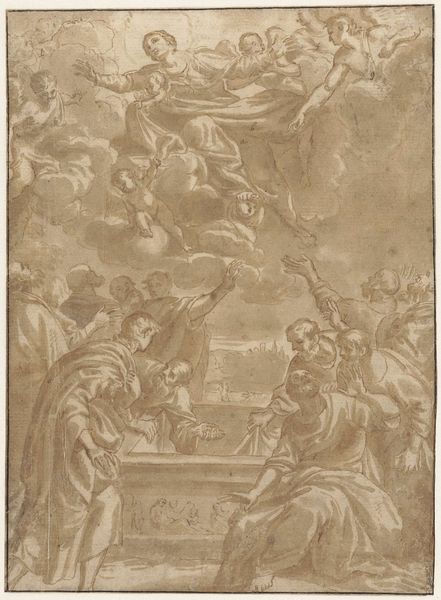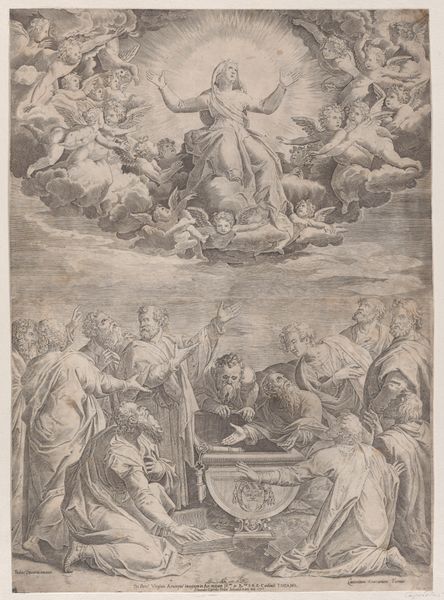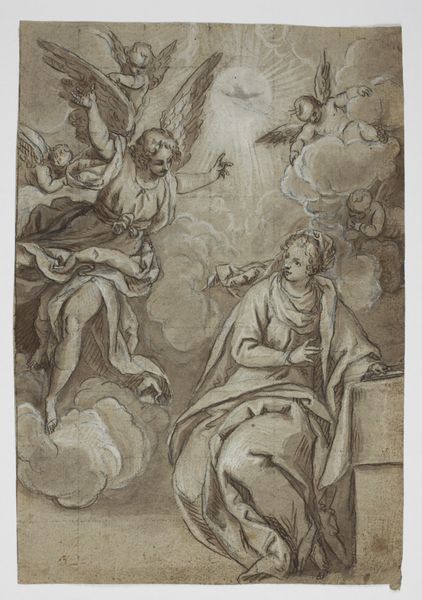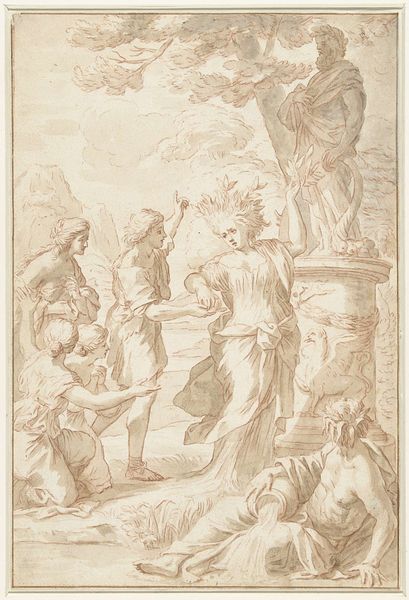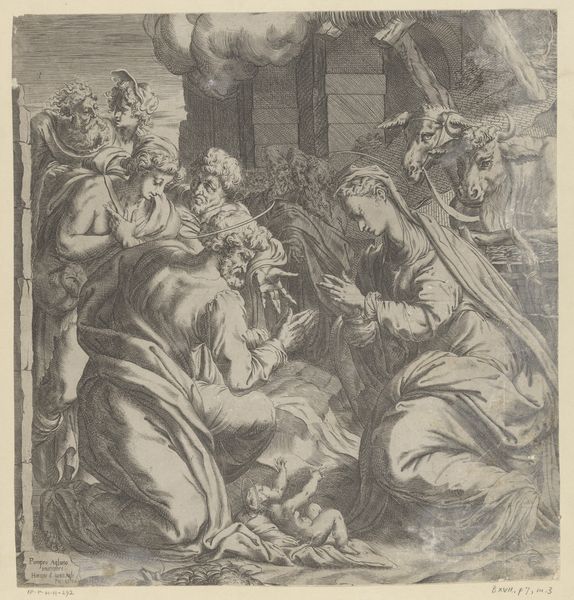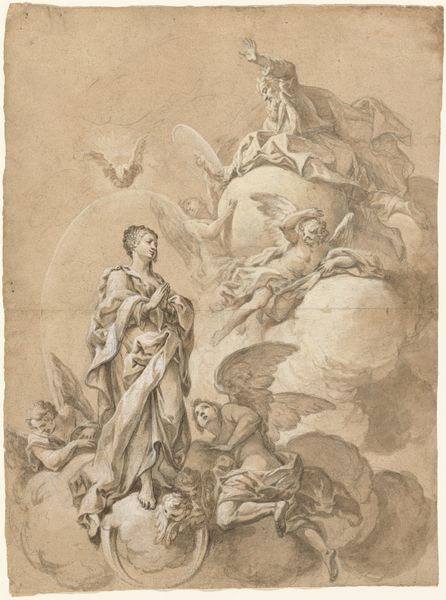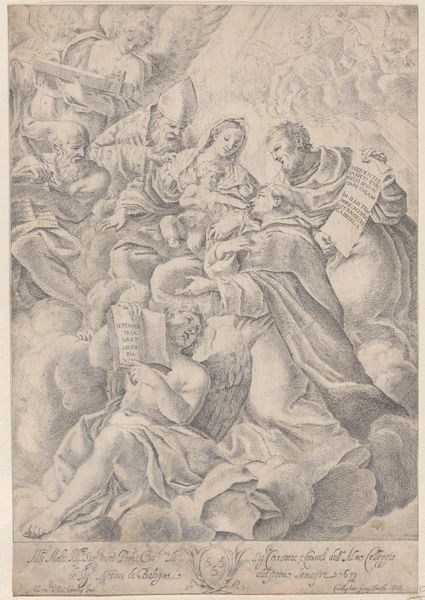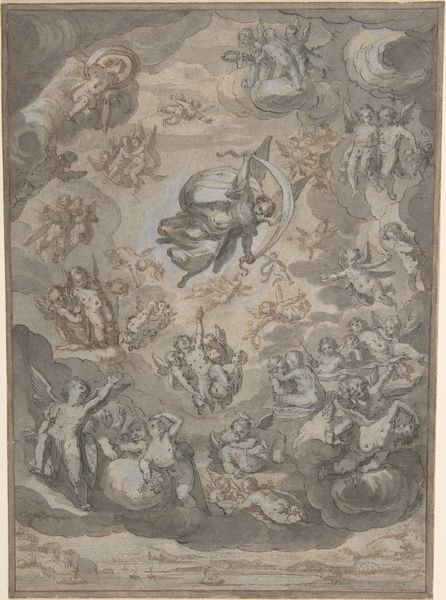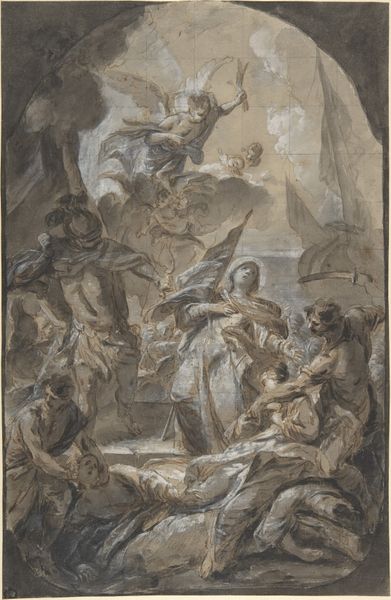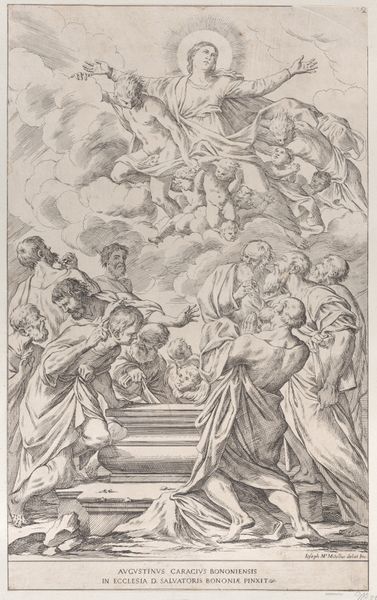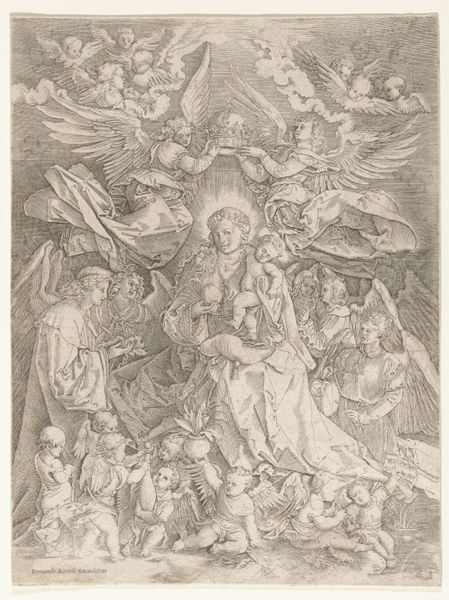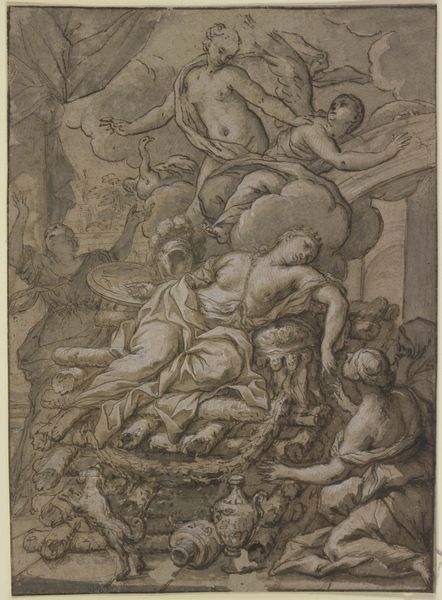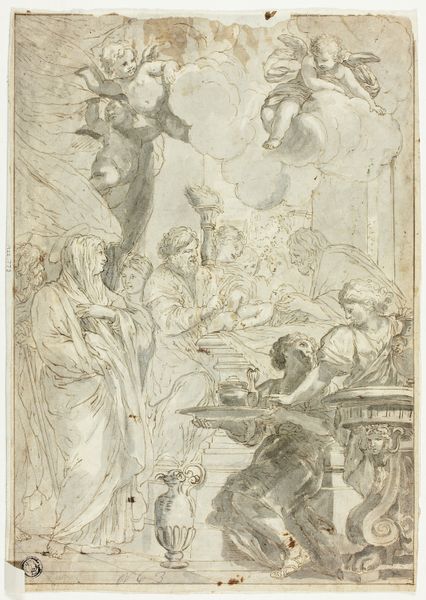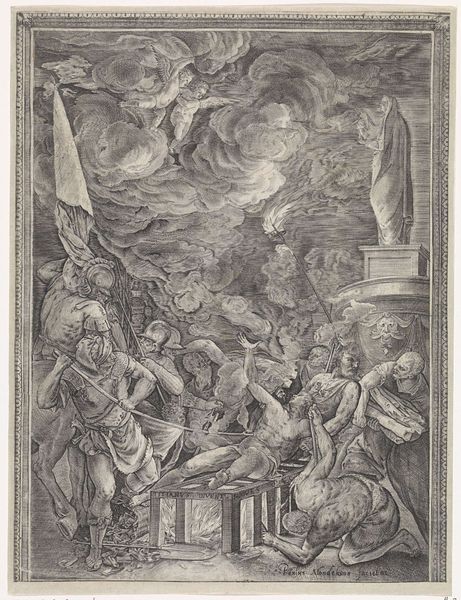
drawing, print
#
drawing
#
toned paper
# print
#
pencil sketch
#
charcoal drawing
#
possibly oil pastel
#
charcoal art
#
fluid art
#
coffee painting
#
underpainting
#
pastel chalk drawing
#
men
#
watercolor
#
christ
Dimensions: 15-3/4 x 10-7/8 in. (40.0 x 27.6 cm)
Copyright: Public Domain
Editor: So, here we have Biagio Pupini's "The Transfiguration, after Raphael," created sometime between 1511 and 1551. It looks like a print, perhaps a drawing of some kind, and the use of toned paper gives it this ethereal, otherworldly feel. It almost feels like we’re looking at a vision. What historical factors might have influenced its creation and reception? Curator: That’s a keen observation. Considering its title, we should start with Raphael's original painting. How did that specific composition become canonized, if you will? The act of reproducing Raphael highlights his established importance in the art world of the time, but also considers who had access to seeing or owning a piece of art at this time. Editor: So, it's about access and influence. Does the fact that it’s a print change how it would have been viewed compared to, say, a painting of the same subject at that time? Curator: Absolutely. Prints democratized imagery to an extent. Multiple copies meant wider dissemination and affordability. How do you think the market for art impacted Pupini’s choice of making a print “after” Raphael, versus an original painting of his own concept? Editor: Hmm… maybe he was trying to capitalize on Raphael’s popularity while making it more accessible? So, we see artistic reverence intertwined with market considerations? Curator: Precisely! Furthermore, who do you think the intended audience might have been, and how might their social or religious beliefs influenced their interpretation of this imagery? Think about the public function of art during the Renaissance. Editor: Thinking about the social aspect really reframes my understanding of this print, it is really about so much more than what appears on the surface. Thanks. Curator: Indeed! I will keep that in mind next time.
Comments
No comments
Be the first to comment and join the conversation on the ultimate creative platform.
